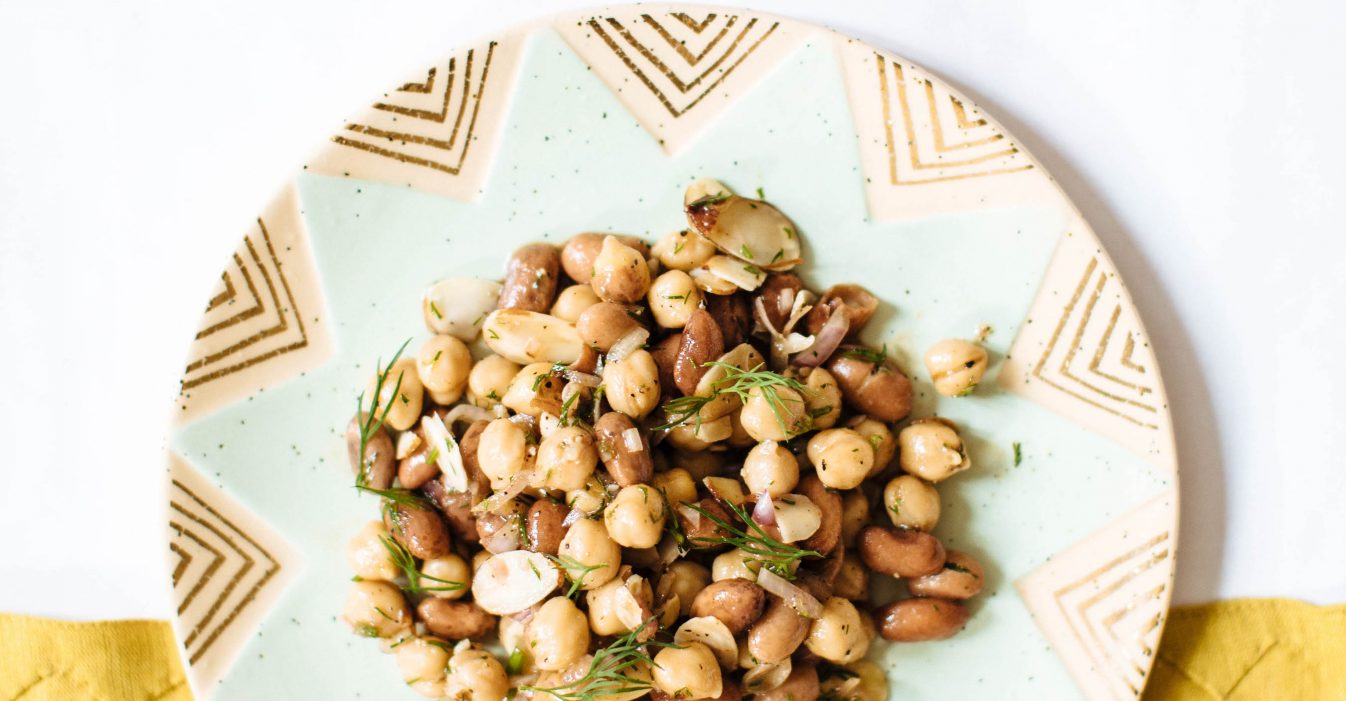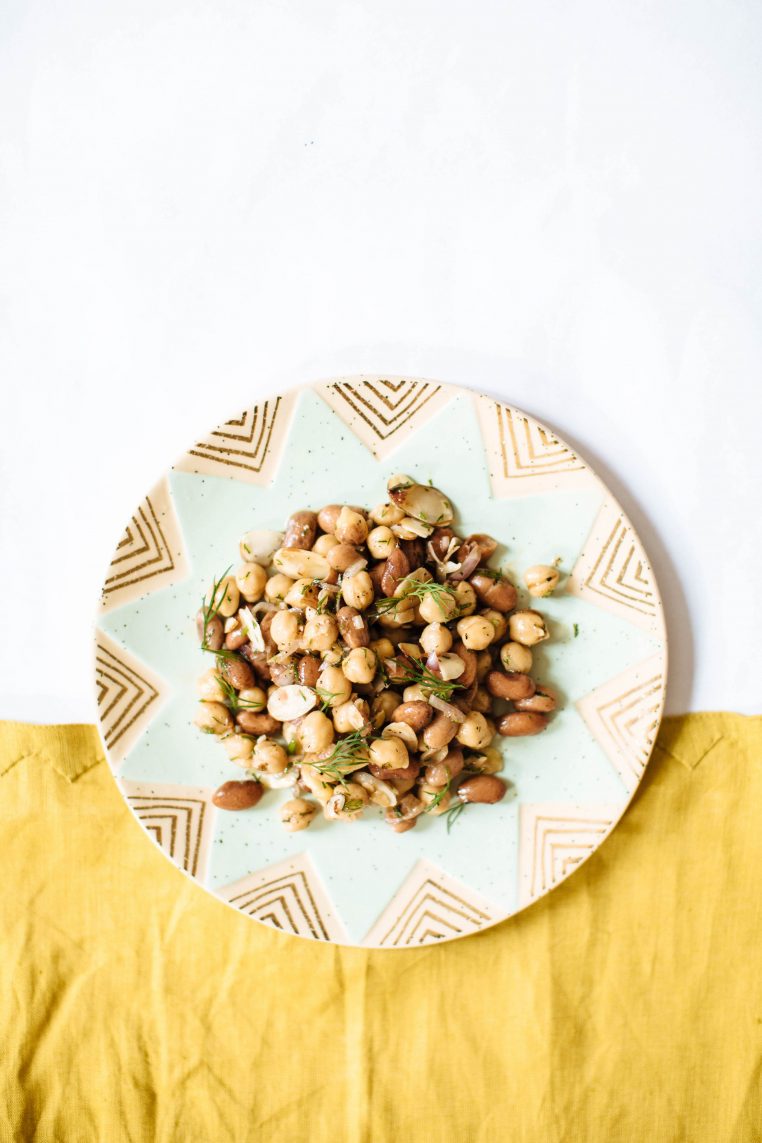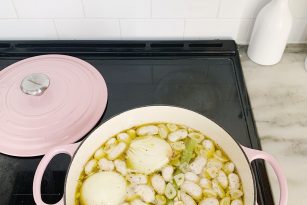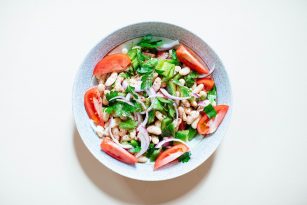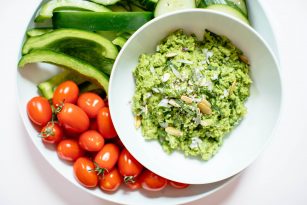Make this two-bean and herb salad that won’t leave you or your friends hungry an hour later — hello fiber and plant-based protein!
Beans are a delicious source of plant-based protein, they’re abundant in soluble fiber, and contain minerals like magnesium.
Not only is this checking the box of nourishing, it’s also checking the box of delicious and something everyone can enjoy.
Whether you need a side dish for the week or you’re looking for a delicious dish to bring to a gathering, this is a great one to try!
CREATING A FOUNDATIONAL FIVE NOURISH MEAL USING This Two Bean and Herb Salad
A Foundational Five Nourish Meal is any meal that contains all 5 elements within our Foundational Five system: non-starchy carbohydrates, starchy carbohydrates, healthy fat, protein, and the Flavor Factor.
If you’re not familiar with our Foundational Five system yet, you can download my free guide where I share more about it!
The Foundational Five supports you in nourishing your physical body so you can learn what to eat, which is the first step in mindful eating. The remainder is knowing how to eat and to experience your food positively.
By including these 5 elements in your meal, you’re supporting your physical body on a cellular level, ensuring you’re consuming the nutrients you need to have a sharp focus, calm digestion, lasting energy, sound sleep, and vibrant long-term health.
Here’s how you can incorporate this 2 Bean Salad into a Foundational Five Nourish Meal:
1 • Non-starchy Carbohydrates
- To make this a complete Foundational Five meal, serve over a bed of greens or with a side of non-starchy vegetables
2 • Starchy or Sugary Carbohydrates
- Pinto beans
- Chickpeas
3 • Healthy Fat
- Olive oil
- Almonds
4 • Protein
- Pinto beans
- Chickpeas
- Optional: for additional protein serve with an additional plant-based protein or animal protein of your choice
5 • Flavor Factor
- Dil
- Smoked paprika
- Lemon
- Salt + Pepper
Fiber
1 cup of black beans contains roughly 15 g of fiber — but not just fiber, protein too. The combination of protein and fiber help your body balance blood sugar and keep you fuller, longer. We know how important fiber is to our digestive system and each day we should aim for at least 35g of fiber (sometimes more depending on your unique metabolism and digestion). Eating enough fiber keeps us regular, aids in a healthy microbiome, and helps our body absorb nutrients.
Plant-based Protein
1 cup of black beans contains roughly 14 g of plant-based protein. Protein (i.e. amino acids) is crucial to our health from rebuilding muscle tissue to balancing hormones, blood sugar balance, and energy production. Read more about plant-based proteins here.
Magnesium
Magnesium is an important mineral in our body and plays a key role in 300 cellular functions in the body including muscle function, protein synthesis, blood sugar control, and blood pressure regulation. It’s also been shown to help decrease PMS, headaches (such as migraines), and can be used to help relax digestive muscles which can reduce constipation.
Additional Minerals
Beans and legumes are rich sources of minerals, which most of the American diet is lacking, especially when it comes to magnesium which is the start mineral in black beans. Beans also contain molybdenum, folate, copper, manganese, phosphorus, iron, and vitamin B.

